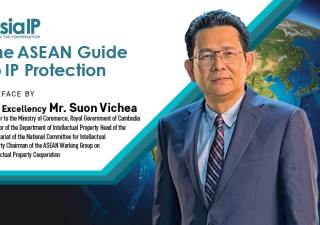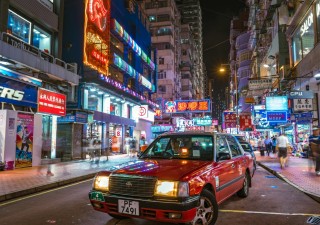GIPC 2024: How do you protect your brand?
19 January 2024

-content_x-large.jpg)
Harsh Aggarwal, Sameet Gambir, Nihit Nagpal, and Shhaurya Sah at the 15th GIPC in Gurugram
That was the initial question that Nihit Nagpal, an associate partner with S.S. Rana & Co. in New Delhi, posed to the panel during a session on day two of the 15th GIPC on January 8, 2024.
“Our markets are mainly India and Africa,” explained Harsh Aggarwal, senior general manager of legal at Havells Sylvania Group. “And our main piracy problems have been in Africa, where the products are made in China.”
According to Aggarwal, key strategies were:
-
Identify where you are going to expand;
-
Get registration sorted in those markets;
-
Understand the vision of where you want to expand your product range and your markets; and
-
Ensure you have at least nominal sales in new markets to avoid non-use cancellations.
These policies, Aggarwal asserted, enable effective planning for registration and protection in target markets.
“It is important to have registrations sorted and up to date,” agreed Shhaurya Sha, managing associate with Stratjuris Law Partners in Pune. He emphasized the need to protect your products in multiple markets, not just where you are present. “Other channels may be getting your goods to those markets.”
Sha also urged companies to identify where those goods come from and if they are genuine products, highlighting 80 percent of counterfeit goods are made in China. To combat counterfeiting, he recommended obtaining a government customs report from China, even if the company is not operating there.
Sameet Gambir, vice president of corporate law and company secretary at DCM Shriram in New Delhi, emphasized the need for a separate brand protection department. “Before you have even begun, there are people in the market ready to register your products,” he said, adding that registrations must be up to date. He also advised speaking with the vendors, sales and customers to strategize properly.
Meanwhile, Nagpal stressed the necessity of having specialist in a dedicated division to safeguard the brand, emphasizing the importance of protecting it in multiple markets to guard against counterfeit goods unexpectedly surfacing.
Are we doing enough?
To identify if a brand is “protected and strong,” Aggarwal suggested to “regularly engage with customs authorities to ensure they know about your brands.” Although this may be expensive, he said companies should consider this an investment.
Gambhir pointed out that it can be challenging to identify counterfeits; some customers may not even realize they are selling counterfeits and not authentic goods. He said breaking the channels between the seller and the counterfeiter is essential.
Another problem is parallel goods – original products sold through unauthorized channels – as such transactions can still count as infringement. Therefore, companies are advised to ensure that agreements with suppliers, packaging manufacturers, shippers and other companies along the supply chain are robust to prevent goods from leaking. Packaging can be a big issue, as infringers can use legitimate packaging to sell fake products. Additionally, the panel stressed the need for stringent controls on supply and production volumes to curtail the leakage of authentic products.
Taking action
“We often conduct civil actions like raids. Litigation can be costly, but it can be worth suing online platforms, such as Alibaba, and other B to B to B to C platforms,” said Aggarwal, highlighting that Havells had successfully sued Alibaba. Gambhir agreed, saying criminal and civil actions are helpful, depending on the location.
Nagpal emphasized that while imitation might be considered flattering, it doesn’t apply in the legal context of counterfeit goods. He suggested moving forward by being industry-specific and using technology for help.
- Darren Barton






